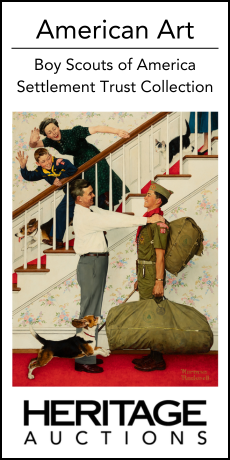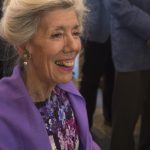
BY JUDY CARMACK BROSS
Editor’s Note: This is the third in a series on women who are uplifting us during COVID-19 with the advice they share on the self-strengthening possibilities of this time. Today we visit Laura Munson, bestselling author of Willa’s Grove and an expert on building your community in isolation, with profiles to come of others who are inspiring us to follow.
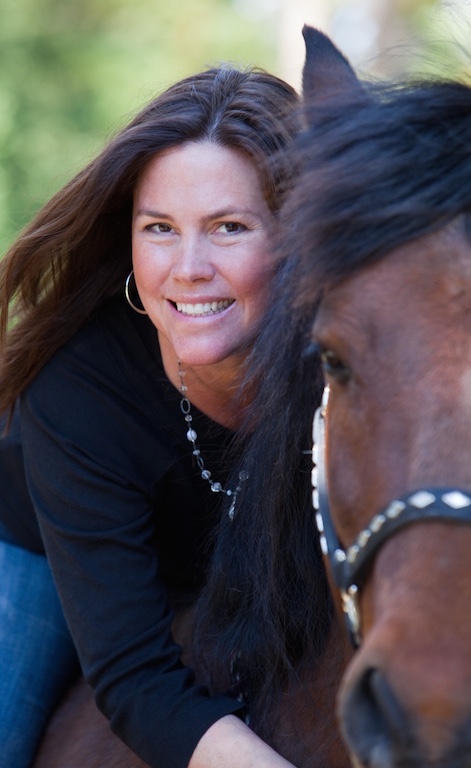
Laura Munson.
Could there be a better time to ask yourself, “Now What?”
New York Times bestselling author Laura Munson, whose novel Willa’s Grove is now rapidly climbing the charts, says you can help reach your answer to this question through journaling.
“Let’s face it, we are all at a crossroads. The silver lining in all of this is that collectively we can put pen to paper. We are not out places where people are always asking how we are doing, and we reflexively say we are ‘just fine.’ I fiercely believe that writing should be up there with diet and exercise as a transformational component in the realm of preventative wellness. In addition to learning to bake bread and enjoy quietness, writing will add to your well-being.”

The author in Montana.
This morning, the Lake Forest native is probably sitting on her Montana front porch viewing the mountains of nearby Glacier National Park. Munson has lived there for 30 years under the state’s big sky. Pre-pandemic, she hosted Haven Writing Retreats there for authors at different levels, something she hopes to offer again in the fall. “Haven meets you where you need to be met, whether you want to write and publish a book, or simply seek a deeper level of authentic self-expression,” Munson says.Her days are now filled with virtual workshops, seminars, and book club presentations along with one-on-ones with authors over the phone. It is her warmth, her lifting voice, her love of teaching, and her genuine regard for participants that keeps the Haven spirit alive online.
Each Friday Munson offers a free writing seminar called “So Now What?” which provides writing prompts around questions aiming to get to the heart of things. On her website, Munson details the hour-long seminar as well as a new monthly 5 hour-seminar. “In this one we take journaling even further in a deeper dive into creative self expression,” she explains.
During last Friday’s Zoom seminar, Munson asked the over-300 attendees to take out a fresh piece of paper and a favorite pen and write on what they felt was the most charged theme in their lives right now: What do you want to let go of? What is your big dream. “A good writing prompt prompts a lot more than words. It prompts truth,” Munson says.
“Lots of people kept journals when they were young because it could be a way to ask big questions and deal with the angst you are feeling. My workshops are very intentional and guided in a helpful way to increase patterns of self awareness,” she adds.
Her first book, This is Not The Story You Think It Is: A Season of Unlikely Happiness, based on the viral essay “Those Aren’t Fighting Words, Dear” from the New York Times “Modern Love” column, was published in nine countries by the legendary Amy Einhorn and Penguin/Putnam.

Willa’s Grove.

Book tour guests with their copy, pre-pandemic.
Munson’s premise for Willa’s Grove shows that her seminars and her novel are like groves of willow trees, united at their roots: “Three women, from coast to coast and in between, open their mailboxes to the same intriguing invitation. Although leading entirely different lives, each has found herself at a similar, jarring crossroads. Right when these women thought they’d be comfortably settling into middle age, their carefully curated futures have turned out to be dead ends,” she describes.
The sender of the invitation is Willa Silvester, who is reeling from the untimely death of her beloved husband and the reality that she must say goodbye to the small mountain town they founded together. Yet as Willa mourns her losses, an impossible question keeps staring her in the face: So now what?
Munson feels that we often need new communities, friends of friends as Jane, a character in Willa’s Grove, says, “We sometimes need people who haven’t logged hours with us in our day-to-day, with all that history and all those scars and expectations. People who don’t take our choices personally. Who aren’t in our regular circles.”
Right now is the time to go “off script,” Munson says, to determine what we value most—to find new friends or new communities through what captures our attention in quietness. “Look at the smallest things—a tiny bird, a nice piece of butter—we are in triage even if we don’t realize it, the events around us tell us fight or flight. Most people are financially impaired at this time to a greater or lesser degree, and the tragic deaths affect us all,” she shares. “We are inherently looking for something slower, and sometimes just stopping to breathe is what we need. If we don’t learn something from this, it will be all the more tragic.”
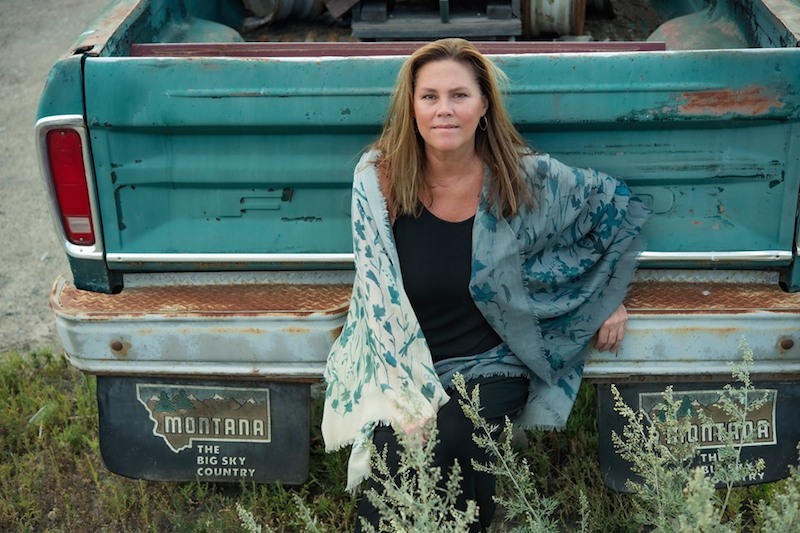
Munson.

At the lake.
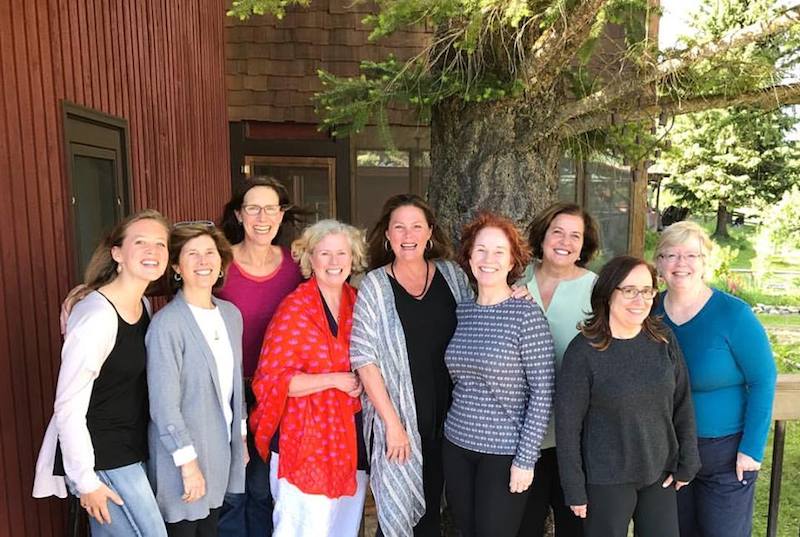
A previous Haven group.
“I am very blessed that I am sheltering in one of the most beautiful places in the world,” she continues. “Usually at this time I would have 12 Haven participants here from all over the world, and do that 12 times a year. I live very close to Whitefish, Montana, and the other day I drove the five miles into town. It hit me that I can’t believe how self isolated I have become in these two months. Our main street, Central Avenue, always offers so much good old-fashioned fun, and it was totally empty. I started to weep for my community and all the dreams that went into the little store fronts.”
In her newsletter, Munson describes herself as a devoted hugger: “I love that long, hard, heart-to-heart, arm-ensconced, deep-breathing moment of physical connection. And so most of our globe is hug-less and has been for months. I worry about the things we’re all worrying about in this pandemic, but I worry about this perhaps most of all. What are the repercussions of not touching one another? I suspect vast. Hugs are innate. Look at children on a playground. They hug each other before they’re done with their first twirl on the merry-go-round. Hugging is part of how we do life. And I miss it. I guess that when hugs are abundant, our subconscious can peer into our deepest fears. And when the are not, we peer into our greatest longing.”
Thankfully, Munson’s nurturing presence and intentional journaling practice she shares feel like we are being embraced, and better embracing ourselves.
For further information, visit lauramunson.com.




